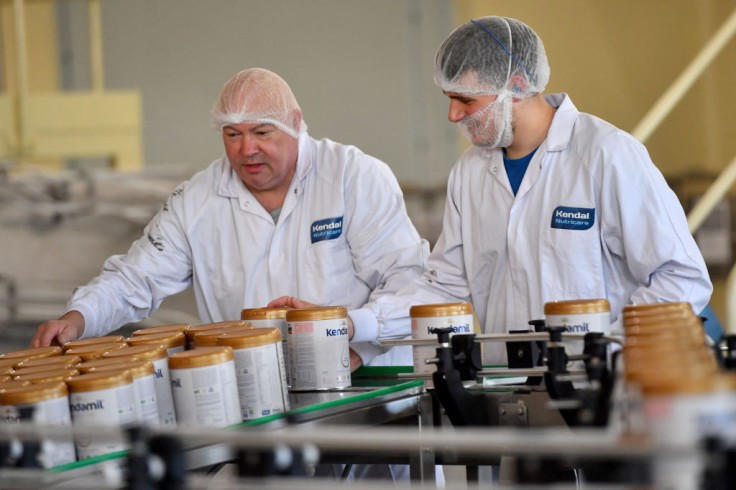
American regulators have historically inspected baby formula plants in the United States at least once a year, but they did not inspect any of the three biggest manufacturers in 2020, according to federal records that The Associated Press reviewed.
When they finally managed to get inside an Abbott Nutrition formula plant in Sturgis, Michigan, after a two-year gap, regulators found standing water and lax sanitation procedures in the facility. But inspectors offered only voluntary suggestions to Abbott for fixing the problems and issued no formal warning to the formula maker.
Inspectors would return to the plant five months later after four infants who consumed powdered formula from the Michigan facility suffered bacterial infections. They found bacterial contamination inside Abbott's factory, leading to a lengthy four-month shutdown and turning a festering supply shortage of formula into a full-blown crisis.
The U.S. forced to import formula products from overseas
It sent parents scrambling to find the much-needed formula and forced the United States to airlift products from overseas, according to a report by CNN.
The gap in inspections of baby formula plants, brought upon by the COVID-19 pandemic, is getting new scrutiny from the U.S. Congress and government watchdogs, who are investigating the series of missteps that led to the crisis.
A recent bill would require the U.S. Food and Drug Administration (FDA) to inspect infant formula facilities every six months. Aside from that, the government's inspector general for health has also launched an inquiry into the FDA's handling of Abbott's Michigan plant, the largest in the United States.
Abbott resumed production at the Sturgis plant early this month under a legally binding agreement with the FDA, but the company's shutdown and nationwide shortage exposed how concentrated the formula industry has become in the United States, with a handful of manufacturers accounting for roughly 90 percent of the market.
The FDA pulled most of its safety inspectors from the field as COVID-19 swept across the United States in early 2020, skipping thousands of routine plant inspections in the process. The federal agency said in a statement that it did conduct more than 800 "mission critical" inspections during the first year of the COVID pandemic.
Read Also : Operation Fly Formula Makes Another Delivery, Flies in 190,000 Pounds of Baby Formula From Australia
FDA only resumed routine inspections in July 2021
Regulators selected facilities for inspections during that period based on whether they carried a specific safety risk or were needed to produce an important medical therapy. Only three of the country's 23 facilities that make, package, or distribute formula made the cut. The FDA only resumed routine inspections back in July 2021.
The inspection records that were reviewed showed gaps as large as 2.5 years between the 2019 inspections of the FDA and when regulators returned to facilities owned by the three leading formula manufacturers in the U.S. - Reckitt, Gerber, and Abbott.
According to agency records, the FDA has yet to return to two key plants owned by Gerber and one owned by Reckitt. UPI reported that all those facilities are operating around the clock to boost formula production in the U.S.